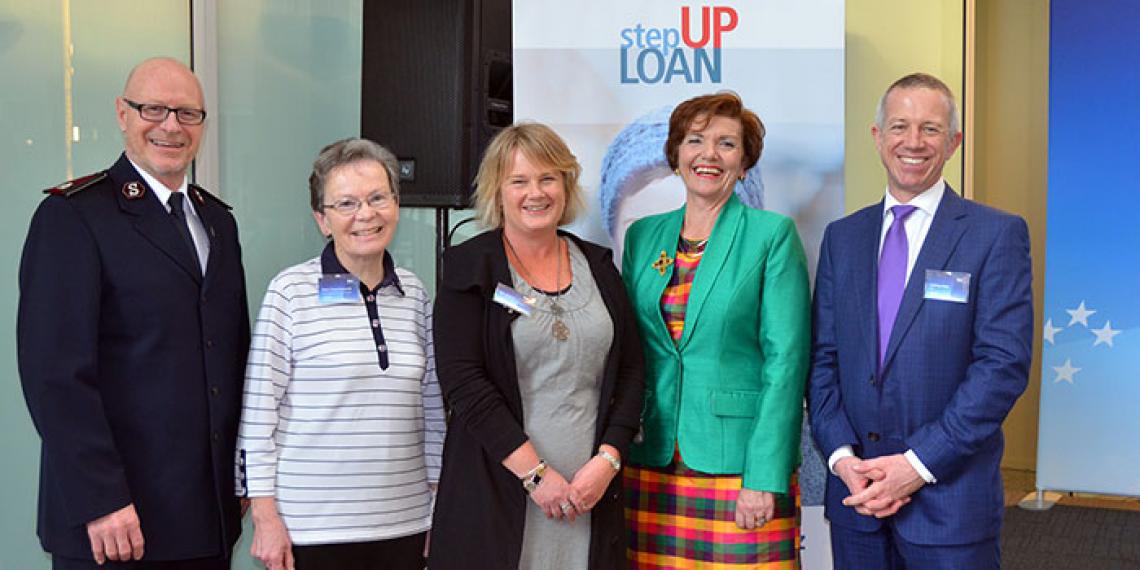You are here
Low-cost Loans Scheme Expands

The Salvation Army is pleased a scheme offering affordable loans for approved people on low incomes is expanding this month after a successful pilot from Salvation Army Community Ministries centres in Manukau, Waitakere and Mt Wellington since 2014.
The Community Finance scheme is a partnership between the Ministry of Social Development, Bank of New Zealand, Good Shepherd NZ and community providers such as The Salvation Army. It provides sustainable borrowing for those on low incomes to support employment outcomes, help families manage debt, build financial literacy, and improve people’s quality of life.
The scheme targets New Zealanders described as ‘financially vulnerable’—meaning they don’t meet standard bank criteria and have exhausted their Work and Income options. As a result, many are forced to take out loans with alternative lenders, many of whom charge high interest rates and fees.
Major Pam Waugh, Territorial Social Services Secretary for The Salvation Army said, ‘Running a tight budget can be hard enough without the added pressure of predatory lenders on your back. The reduced stress these Community Finance loans deliver can make such a difference to people's everyday lives and overall wellbeing.’
Two types of loans are available:
- No Interest Loan (NILS) of up to $1000 for a maximum of 18 months.
- Low-interest StepUP loans from $1000 to $5000 at 6.99% for a maximum of 36 months.
Salvation Army centres offering both StepUP and NILS loans are: Whangarei, Waitakere, Mt Wellington, Manukau, Napier, Palmerston North, Porirua, Wellington and Invercargill.
Salvation Army centres offering NILS loans only are: Royal Oak, Pukekohe, Glenfield, Gisborne, Hamilton, Feilding, Porirua, Upper Hutt, Nelson Tasman Bays, Greymouth and Christchurch. These centres are also piloting an additional ‘delivery mechanism’ component for NILS loans.
The Salvation Army’s loan services will be available at the new centres starting from Thursday 22 October.
Loans can be used for essential household goods and services such as white goods, medical and health expenses, or higher cost assets such as motor vehicles. They can also be used for funeral costs. Funding is not available for fines, bills, debt reduction or non-essential items such as holidays.
Fleur Howard, Chief Executive of Good Shepherd New Zealand, said, ‘We know [this scheme offers] so much more than a loan. By connecting with community loan workers, people learn life skills like managing their budget better and become more savvy in their understanding of the dangers of third-tier lenders. There are broader societal benefits in what the loans deliver too—a reliable car for many of our customers is what they need to hold down a full- time job. A computer can help with further education.’
Applicants need to fulfil the following criteria:
- have the ability to repay a loan
- be on a low income (from work or benefits)
- hold a Community Services Card
- have lived at their current address continuously for at least the past three months.
BNZ, which provides money for the Community Finance scheme, said 280 loans had been approved, and estimated that the $700,000 of lending to date has saved clients more than $380,000 in interest when compared to borrowing the same amount through alternative lenders.
Chief Executive Anthony Healy said the bank had been a proud partner since the scheme’s inception and had now committed $60 million in lending over the long term, as well as expertise and advice where needed.
‘Community Finance addresses a very real need and BNZ is proud to be part of that. But what is most exciting is seeing what comes next for a client; what the loan enables. I heard about a young man who came to us and said that the only thing stopping him from getting a job was having a car. We were able to arrange a StepUP loan with Community Finance, which meant he could buy a second-hand car. We were delighted when he told us he had secured an apprenticeship the next day,’ he said.
- For more information, go to www.salvationarmy.org.nz/loans
Photo (l-r): Commissioner Robert Donaldson, Sister Teresa Donworth and Fleur Howard of Good Shepherd NZ, Minister of Social Development Anne Tolley, and Anthony Healy of BNZ